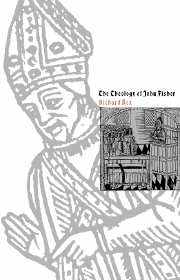Book contents
- Frontmatter
- Contents
- Acknowledgments
- List of abbreviations
- Introduction
- 1 Humanism and scholasticism in late fifteenth – century Cambridge
- 2 The preaching bishop
- 3 Fisher and the Christian humanists, 1500–1520
- 4 The Magdalene controversy
- 5 Fisher and the Catholic campaign against Luther
- 6 Authority
- 7 Faith, grace and justification
- 8 The eucharist
- 9 The inspiration and translation of scripture
- 10 The controversy over Henry VIII's first marriage
- 11 Conclusion
- Appendix John Fisher's library
- Notes
- Bibliography
- Index
1 - Humanism and scholasticism in late fifteenth – century Cambridge
Published online by Cambridge University Press: 04 November 2009
- Frontmatter
- Contents
- Acknowledgments
- List of abbreviations
- Introduction
- 1 Humanism and scholasticism in late fifteenth – century Cambridge
- 2 The preaching bishop
- 3 Fisher and the Christian humanists, 1500–1520
- 4 The Magdalene controversy
- 5 Fisher and the Catholic campaign against Luther
- 6 Authority
- 7 Faith, grace and justification
- 8 The eucharist
- 9 The inspiration and translation of scripture
- 10 The controversy over Henry VIII's first marriage
- 11 Conclusion
- Appendix John Fisher's library
- Notes
- Bibliography
- Index
Summary
The importance of Cambridge in the intellectual formation of John Fisher can be readily appreciated from the outline of his brilliant career that is preserved for us in the university's records. On graduating BA in 1488 and MA in 1491 he was elected a fellow of Michaelhouse, a post which required him to be ordained priest. He soon became an influential figure about the university. As senior proctor for the academic year 1494–5 he made the acquaintance of Lady Margaret Beaufort, a meeting of great consequence both for his career and for the development of the university. In the years 1496–7 he was paid as an ‘ordinary’ lecturer, and around the turn of the century he became Lady Margaret's confessor. He graduated doctor of divinity on 5 July 1501, and ten days later was elected vice-chancellor. The following year he took up the Lady Margaret readership of divinity, which he had encouraged his patroness to endow. In 1504 he was appointed by Henry VII to the see of Rochester, and within a year he was elected chancellor of the university, a post to which he was re-elected every year until 1514. Then, having first resigned in favour of Wolsey (who refused the honour), he accepted the university's subsequent offer of the post for life. Such a bald outline, however, tells us nothing about the nature of Cambridge's influence on Fisher.
- Type
- Chapter
- Information
- The Theology of John Fisher , pp. 13 - 29Publisher: Cambridge University PressPrint publication year: 1991



